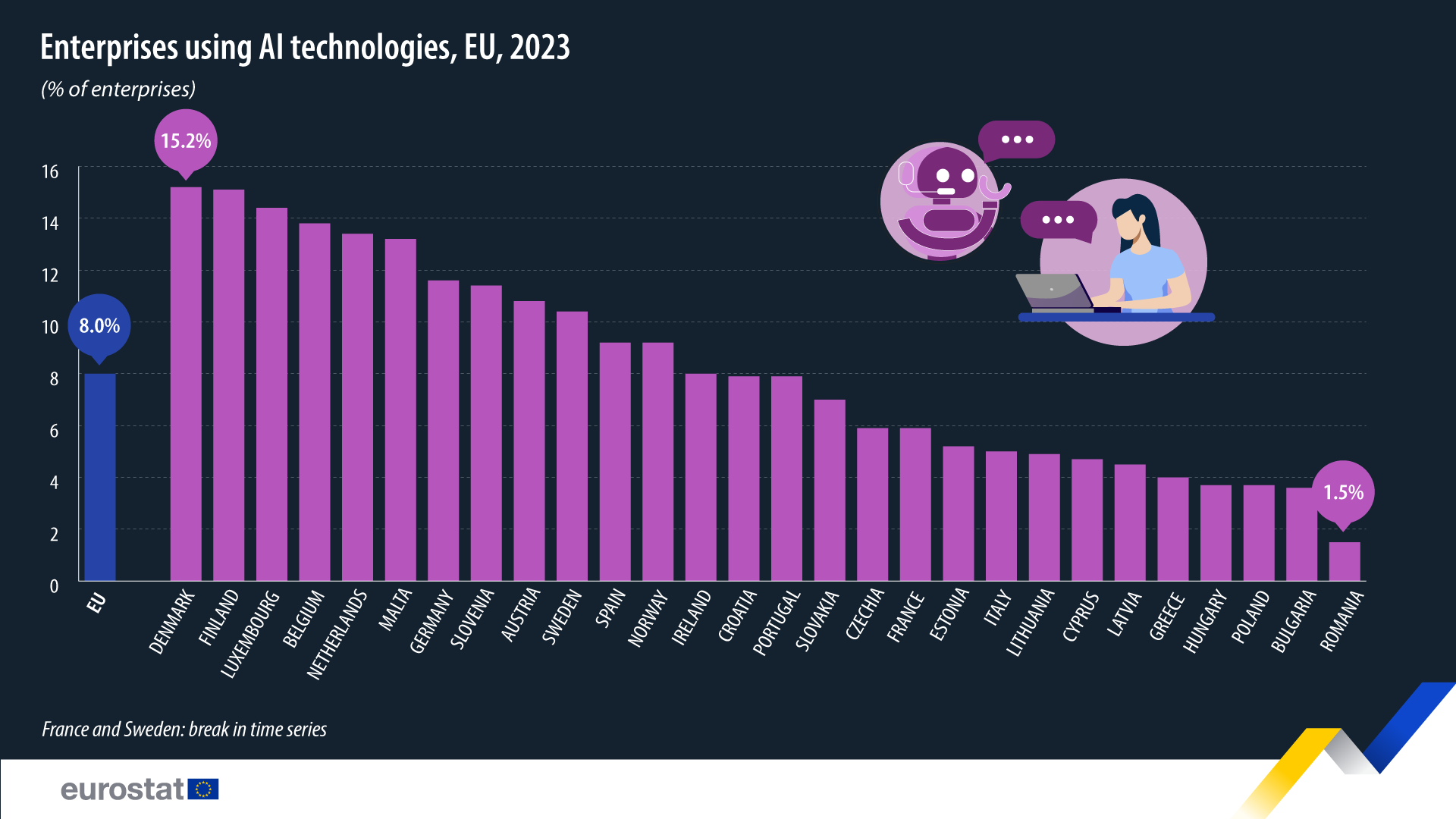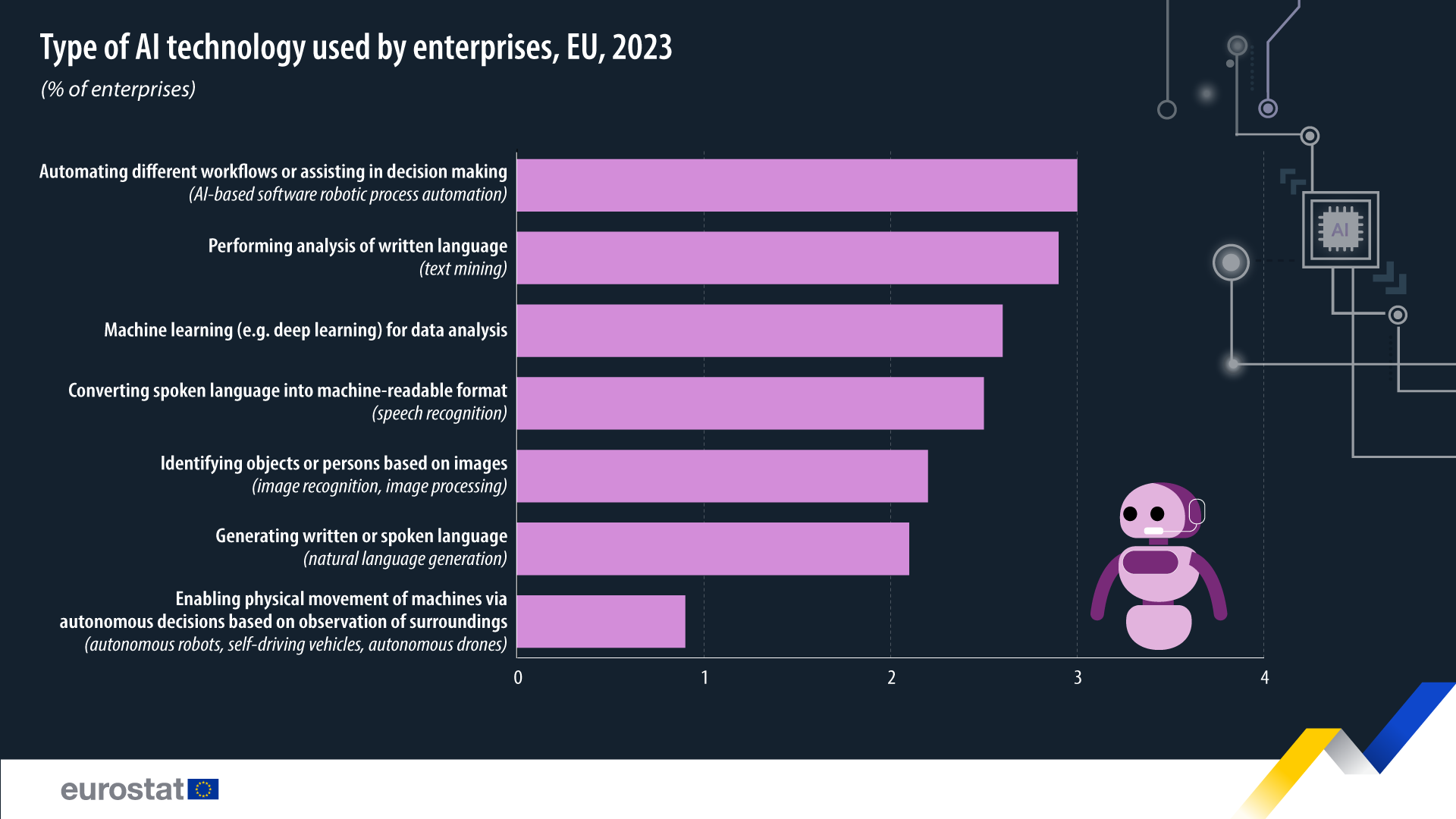June 10, 2024
In 2023, 8% of enterprises in the EU with 10 or more employees used Artificial intelligence (AI) technologies to conduct their business.
This data comes from the newly updated Statistics Explained article on the use of artificial intelligence in enterprises.
Artificial intelligence refers to systems that use technologies such as text mining, computer vision, speech recognition, natural language generation, machine learning and deep learning to gather and/or use data to predict, recommend or decide – with varying levels of autonomy – the best action to achieve specific goals.
The highest shares of enterprises with 10 or more employees using AI technologies were in Denmark (15.2%), Finland (15.1%) and Luxembourg (14.4%). Meanwhile, the lowest shares were recorded in Romania (1.5%), Bulgaria (3.6%) and Poland (3.7%) and Hungary (3.7%).
Source dataset: isoc_eb_ai
When it comes to the type of AI technology used by these enterprises, in 2023, automating different workflows or assisting in decision-making (AI-based software robotic process automation) was the most used, with 3% of the enterprises using it. Performing analysis of written language (text mining; 2.9%) and machine learning (e.g. deep learning; 2.6%) followed.
Source dataset: isoc_eb_ai
Other types of AI technologies used include converting spoken language into machine-readable format (speech recognition; 2.5% of the enterprises), identifying objects or persons based on images (image recognition, image processing; 2.2%), generating written or spoken language (natural language generation; 2.1%) and enabling physical movement of machines via autonomous decisions based on observation of surroundings (autonomous robots, self-driving vehicles and autonomous drones; 0.9%).
Source: Eurostat
Legal Notice: The information in this article is intended for information purposes only. It is not intended for professional information purposes specific to a person or an institution. Every institution has different requirements because of its own circumstances even though they bear a resemblance to each other. Consequently, it is your interest to consult on an expert before taking a decision based on information stated in this article and putting into practice. Neither Karen Audit nor related person or institutions are not responsible for any damages or losses that might occur in consequence of the use of the information in this article by private or formal, real or legal person and institutions.








